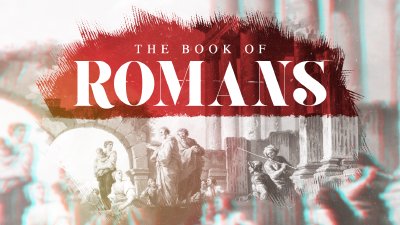This week, JC teaches from Romans 14:12-17. In these verses, Paul focuses on how we are not to judge others or put stumbling blocks in front of them. Not only do we need to think about external hindrances like eating, drinking, what we watch, etc, but also internal hindrances like pride and envy. There may be things in our lives that we regard as good, but they may be a stumbling block for others. We need to walk in love and recognize those things so we do not do harm. Matthew 16:23, Christ tells us that stumbling blocks come when our focus is on things of man and not things of God.

Stumbling Blocks
February 21, 2021 • JC Neely • Romans 14:12–17
To God Glory Forevermore
May 2, 2021 • Greg Pinkner • Romans 16:25–27
This week, Greg finished our series on Romans. He taught from Romans 16:25-27. Greg references Paul's thesis stated in Romans 1:16-17. To be righteous is to be what God requires of us, and Paul says we can only achieve this through faith. Romans shows us that we must put our faith in Jesus and the cross. We cannot simply believe the facts of Christ's life, we must trust in Him and have the obedience of faith.
Pursuing, Protecting, & Restoring Unity
April 25, 2021 • Rick Dunn • Romans 16:17–23, 1 Timothy 6:3–6, Jeremiah 14:14, Matthew 7:14
This week, Rick teaches on Romans 16:17-23. In these verses, Paul speaks about false teachers and false prophets. Those who are false teachers are longing for status, money, and power and we as humans are easily drawn to these things. As believers, we must battle against these things and work towards unity. We do this by not diluting the truth or diminishing the grace of the Gospel, but by serving with the truth of the Gospel.
New People, New Family, New Mission
April 18, 2021 • RD McClenagan • Romans 16:1–16
This week, RD teaches on Romans 16:1-16. In these verses, Paul lists out 28 names of people active in the church of Rome and who were living out the mission of Jesus. This group of people were all from different classes and economic statuses, they were different genders, and different races and ethnicities. However, Paul uses this to show that there is not a specific type of person that can become a Christian - it is open for everyone. Through Christ, they were given new life and became new people, they were given a new family in the church, and a new mission for their lives.




